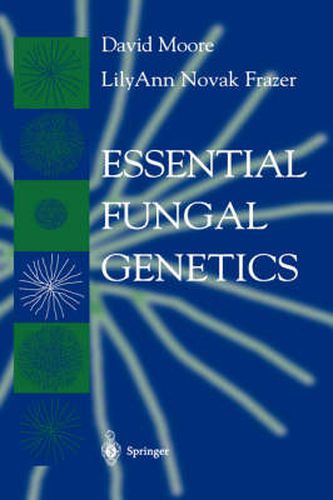Readings Newsletter
Become a Readings Member to make your shopping experience even easier.
Sign in or sign up for free!
You’re not far away from qualifying for FREE standard shipping within Australia
You’ve qualified for FREE standard shipping within Australia
The cart is loading…






This title is printed to order. This book may have been self-published. If so, we cannot guarantee the quality of the content. In the main most books will have gone through the editing process however some may not. We therefore suggest that you be aware of this before ordering this book. If in doubt check either the author or publisher’s details as we are unable to accept any returns unless they are faulty. Please contact us if you have any questions.
Most genetics textbooks deal adequately with plant and animal genetics, but tend to neglect fungi except for two areas. Firstly, the ascus segregations which, in the 1960s, contributed so much to developing an understanding of the mechanism of recombination and secondly, the contribution that work on yeast (as a model eukaryote) is currently making to understanding cell cycle control and its genetic regulation. Consequently, most introductory genetics texts will leave the reader/student with the impression that fungi are of use when peculiarities of their structure or life style suit them to particular experimental approaches, but are not worth mentioning otherwise. The authors have produced a book that will compensate for this imbalance. This book discusses the genetics of fungi, or mycology, in a way that is attractive and challenging, succinct yet comprehensive, sensitive to commercial and applied aspects, yet also theoretical, dealing with their genetics from molecules to individuals to population. This short text will be an ideal supplement to the established basic textbooks in genetics or can be used as the sole text for an advanced course devoted to fungal genetics.
$9.00 standard shipping within Australia
FREE standard shipping within Australia for orders over $100.00
Express & International shipping calculated at checkout
This title is printed to order. This book may have been self-published. If so, we cannot guarantee the quality of the content. In the main most books will have gone through the editing process however some may not. We therefore suggest that you be aware of this before ordering this book. If in doubt check either the author or publisher’s details as we are unable to accept any returns unless they are faulty. Please contact us if you have any questions.
Most genetics textbooks deal adequately with plant and animal genetics, but tend to neglect fungi except for two areas. Firstly, the ascus segregations which, in the 1960s, contributed so much to developing an understanding of the mechanism of recombination and secondly, the contribution that work on yeast (as a model eukaryote) is currently making to understanding cell cycle control and its genetic regulation. Consequently, most introductory genetics texts will leave the reader/student with the impression that fungi are of use when peculiarities of their structure or life style suit them to particular experimental approaches, but are not worth mentioning otherwise. The authors have produced a book that will compensate for this imbalance. This book discusses the genetics of fungi, or mycology, in a way that is attractive and challenging, succinct yet comprehensive, sensitive to commercial and applied aspects, yet also theoretical, dealing with their genetics from molecules to individuals to population. This short text will be an ideal supplement to the established basic textbooks in genetics or can be used as the sole text for an advanced course devoted to fungal genetics.